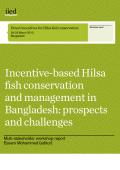

This paper describes how International Labour Standards could be made more relevant to climate change in terms of its impact on employment and the labour market. It addresses the transition to a low carbon economy through a framework of policy coherence and good governance using International Labour Standards as guidelines for supporting not only the social dimension of sustainable development, but the economic and environmental ones as well.

The 21st century faces two defining challenges: the first is to avert dangerous climate change and a deterioration of natural resources which would seriously jeopardize the quality of life of present and future generations. The second is to deliver social development and decent work for all. Green jobs and the promotion of the green economy have become the key drivers for achieving an economic and social development that is also environmentally sustainable.
The green growth concept has both strategic and analytical merit. It has strategic merit by turning a negative debate about a costly constraint (on emissions) into a narrative about potentially attractive opportunities. Authors like Barrett believe that this might change the dynamics of the international negotiations.
Analytically, green growth applies a new, richer and more diverse set of economic tools to a burning issue. This has implications on policy design. The ‘green growth’ narrative reinforces, rather than diminishes, the need for collective action. The economic opportunities that green growth may bring do depend on a joint understanding by a sufficiently large number of players that this is the way to go. This makes green growth a classic collective action problem.
This report looks at potential options for curbing emissions from international aviation. It considers the environmental, economic and political consequences of potential market based mechanisms, and offers an overall assessment of climate policy in this sector.
